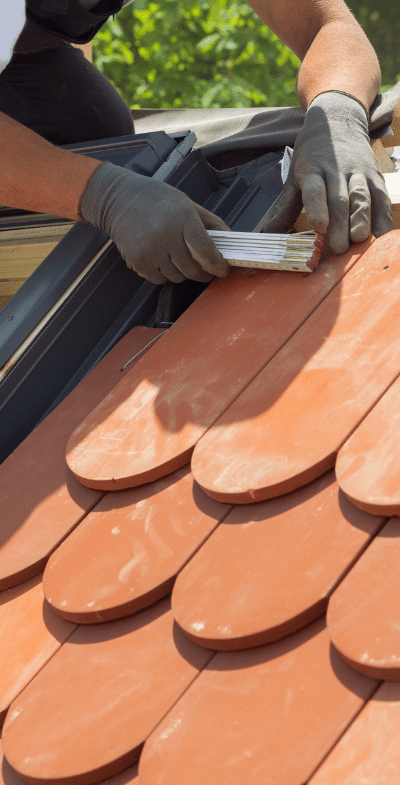FAQ
Home > FAQ
-
1. What is commercial roofing?
Commercial roofing systems commonly use single layer (PVC, TPO, EPDM), modified bitumen, concrete, prefabricated roof systems, gravel, tar, and other materials. A commercial roof has a smaller slope or is entirely flat and significantly larger than a residential one. Flat roofs are more difficult to maintain and repair as they are made up of large spaces built-in pieces.
-
2. What is the best commercial roofing material?
The ideal commercial roofing material will vary depending on the requirements of the customer and the environment in which the roof is located. Budget, roof size, building use, and other considerations are also taken into account. Contact us now to find out more about how our professional team can help you select the perfect roof for your flat or slightly pitched business property.
-
3. How to estimate commercial roofing?
A commercial roofing square is a 10-by-10-foot area of a roof that covers 100 square feet. This important unit of measure helps your roofing contractor determine how much material they will need for your job, from underlayment to roof tile bundles.
-
4. What are the different types of commercial roofing?
• Green Roofing
• Spray-On Silicon
• Metal Roofing
• Shingle Roofing
• Thermoset EPDM Roof Membrane
• Thermoplastic PVC & TPO Roof Membrane
• Built-Up Roofing (BUR) Membrane
-
5. What is the most commonly used residential roofing material?
Asphalt shingles are by far the most used form of residential roofing material in the United States. A roof consisting primarily of shingles and other asphalt roofing components is known as an asphalt roof. They are now being strengthened with fiberglass material, extending the product's lifespan.
-
6. What type of metal roofing is best for commercial or residential?
In coastal areas, aluminum roofs are a great option because they are cheaper than copper or zinc roofs. Steel is the most commonly used material, making it a less expensive and affordable metal roofing alternative for both households and businesses.
-
7. What is the difference between commercial and residential roofing?
A commercial roof usually consists of a flat or nearly flat metal or membrane roof. Residential roofs are often steeper and offer a wider range of alternatives. Competent, trained roofers are required to meet the needs of all roofs. They can provide you with the best recommendations on what materials will work best in certain situations.
-
8. Which roof system should I choose for residential roofing?
Asphalt shingles are ideal for most homes as they are very light, affordable, and easy to install. They are sold as sheets that are laid on the roof to mimic the look of more expensive single shingles such as slate or cedar, which are laid one at a time.
-
9. What is the best residential roofing shingle?
The amount of effort required to install different roofing materials varies. As a result, installation costs will vary depending on your chosen materials. For example, high-quality shingles can last up to 50 years. Most households and developers use asphalt shingle roofing in the United States. So it all depends on your specific requirements.
-
10. What is the average roof replacement cost?
A new roof can cost anywhere from $5,000 to $45,000, depending on the area, the materials used, and the style of your property. This will vary in price depending on the roofing material you choose and the cost of labor where you live.
-
11. How to find private label suppliers?
Searching online marketplaces is a great way to identify private label manufacturers. You can search for private label products in your desired niche and then contact the supplier to see if they can manufacture your product.
-
12. Where are our suppliers located?
Most retailers do not manufacture their own products. Rather, they buy their goods from wholesalers. Wholesalers are not only fantastic product suppliers, but they are also adaptable enough to help you grow and expand your business.
-
13. How much do skylights cost?
The cost of installing a skylight varies considerably depending on the type of skylight and whether you do it yourself or hire a contractor. The usual price range is $900 to $2,300, with the national average around $1,500.
-
14. What are skylights?
Skylights can provide both light and ventilation. The heated air, which naturally collects towards the ceiling, is released through an operating skylight when the building is ventilated. The bottom of most vent skylights opens outward, while some systems vent through a small hinged panel.
-
15. How to clean skylights?
For cleaning, use only mild soap and water or a solution of water and vinegar, or contact the manufacturer for exact instructions. Glass cleaners containing ammonia or alcohol can damage the surface! If you have hard water, clean your skylights with distilled water to avoid mineral buildup.
-
16. What to do with the ceiling after removing skylights?
The ceiling and roof can be secured with drywall and plywood once the new frame and polyethylene are in place. After that, you can add additional attic insulation and build a suitable roof. The final step will be gluing and painting the new drywall to match the existing ceiling.
-
17. How to install metal roofing?
Metal roofing systems that you can install yourself are widely available, but you must be experienced with metal (or pay a high price). Contacting Ft Worth roofers for the best installation and worry-free operation is your best bet.
-
18. What is the average price for metal roofing?
National average costs for metal roofing materials range from $6.38 to $28.50 per square foot installed (including labor), bringing the average cost of a 1,600 square foot metal roof to between $12,400 and $45,600.
-
19. What are the different styles of metal roofing?
Metal roofing materials such as copper, aluminum, stainless steel, and zinc are excellent choices. When it comes to choosing the best metal roofing material, it's best to start with knowing the common and unique elements of a structure, whether residential or commercial.
-
20. What is the difference between corrugated and ribbed metal roofing?
Corrugated metal roofing is made from metal sheets rolled into panels. The screws are then used to fasten the panels to the roof. Corrugated metal is an exposed fastener panel, which means every fastener on the panel surface is visible. Corrugated sheet metal is often round and corrugated.
The fins of the ribbed metal panel have sloped sides. Most finned metal is designed for heavy-duty applications in agriculture, but more recently it has come into use in residential and commercial applications. It is popular for roofing, siding, fence, and interior work due to its durability and versatility!
-
21. What is the difference between TPO and PVC roofing?
An ethylene or polyethylene thermoplastic is bonded to ethylene propylene rubber in TPO roofing membranes. Vinyl chloride monomers are polymerized and plasticizers are added to increase the flexibility of PVC roofing membranes.
-
22. What is TPO roofing?
Thermoplastic polyolefin (TPO) is a single-layer roofing membrane that has become one of the most popular commercial roofing systems. Flat roofs can be covered with TPO roofing systems consisting of a single layer of synthetics and reinforcing mesh.
-
23. What colors does TPO roofing come in?
You have three membrane color options: brown, white, and grey. Flat roofs don't have to be as eye-catching as sloped roofs like shingles because they aren't as conspicuous. There is no additional charge for standard TPO colors.
-
24. What is the difference between EPDM and TPO roofing?
EPDM roofing has a dark surface that absorbs heat in summer, causing air conditioners to work overtime, but TPO roofing reflects sunlight, allowing commercial air conditioners to work more efficiently. TPO also has higher puncture resistance than EPDM.
-
25. Is TPO roofing good?
In fact, the thickness of TPO roofing has little effect on its quality or durability. Again, since TPO roofing is new to the market, there is not much evidence or research to support claims about how long this type of roofing membrane will last. According to roofing experts, a TPO roof will last 10 to 20 years.
Book Roofing Inspection
We will get back to you as soon as possible.
Please try again later.


